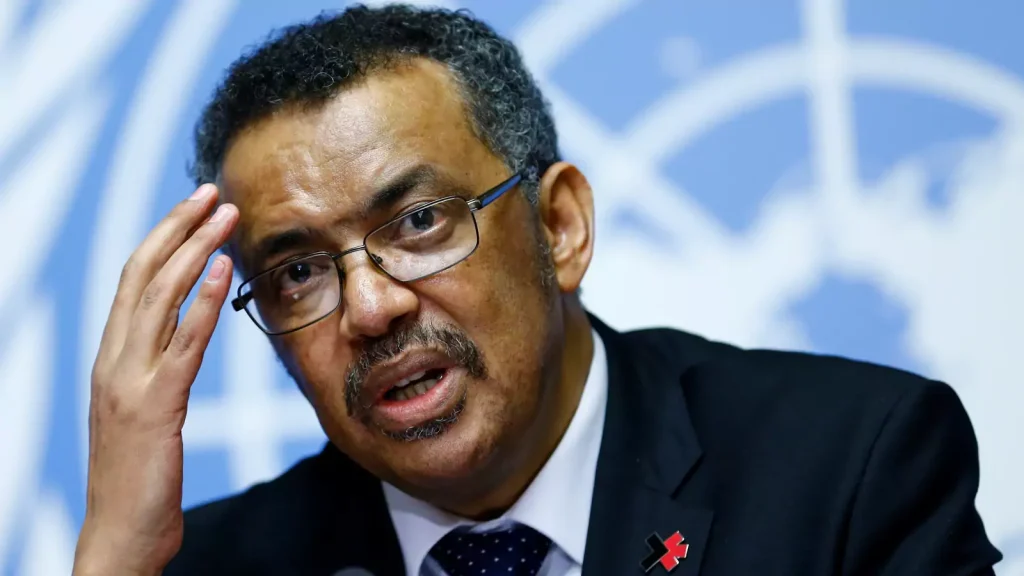The Director-General of the World Health Organisation (WHO), Tedros Ghebreyesus, addressed the significant barriers facing humanitarian work in Gaza, Sudan, and Ethiopia during a press briefing.
In Gaza, Dr. Tedros highlighted the dire situation, noting that nearly 90 percent of the population, equivalent to 1.9 million people, have been displaced. With only 15 partially functioning hospitals, inadequate access to clean water, and overcrowded living conditions, the region is susceptible to the rapid spread of diseases. Dr. Teresa Zakaria, a Health Emergencies Interventions Technical Officer, expressed concern about the lack of access hindering their understanding of the situation and the measures needed to control the potential spread of diseases.
Dr. Tedros emphasised the challenges in delivering humanitarian aid to Gaza, citing intense bombardment, movement restrictions, fuel shortages, and communication disruptions. He called on Israel to approve requests by the WHO and other partners for humanitarian aid, stressing the urgency of establishing safe corridors for aid and workers.
In Sudan, Dr. Tedros reported a deteriorating situation after nine months of conflict, with increasing violence, mass displacement, the spread of diseases like cholera, and insecurity undermining WHO’s efforts. He expressed particular concern about reports of sexual and gender-based violence, family separation, and child recruitment. Malnutrition is a critical issue, with 3.5 million children under the age of five acutely malnourished.
Turning to Ethiopia, Dr. Tedros raised alarm about the worsening health crisis, especially in the conflict-affected north-western region of Amhara. The conflict has damaged or destroyed health facilities, impeding humanitarian assistance. Conflict, drought, and displacement are contributing to widespread hunger and disease outbreaks.
Regarding COVID-19, Dr. Tedros stressed that while the virus is no longer a global health emergency, it continues to circulate, mutate, and cause fatalities. He highlighted an increase in transmission during December, driven by holiday gatherings and the prevalence of the JN.1 variant. The data showed a significant rise in deaths, hospitalisations, and ICU admissions compared to November.
Dr. Maria Van Kerkhove, WHO’s Director for Epidemic and Pandemic Preparedness and Prevention, noted a global increase in respiratory infections, including influenza, COVID-19, adenovirus, rhinovirus, and bacterial infections.

